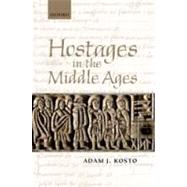Hostages in the Middle Ages
, by Kosto, Adam J.- ISBN: 9780199651702 | 0199651701
- Cover: Hardcover
- Copyright: 9/7/2012
In medieval Europe hostages were given, not taken. They were a means of guarantee used to secure transactions ranging from treaties to wartime commitments to financial transactions. In principle, the force of the guarantee lay in the threat to the life of the hostage if the agreement were broken but, while violation of agreements was common, execution of hostages was a rarity. Medieval hostages are thus best understood not as simple pledges, but as a political institution characteristic of the medieval millennium, embedded in its changing historical contexts. In the Early Middle Ages, hostageship was principally seen in warfare and diplomacy, operating within structures of kinship and practices of alliance characteristic of elite political society. From the eleventh century, hostageship diversified, despite the spread of a legal and financial culture that would seem to have made it superfluous.Hostages in the Middle Agestraces the development of this institution from Late Antiquity through the period of the Hundred Years War, across Europe and the Mediterranean World. It explores the logic of agreements, the identity of hostages, and the conditions of their confinement, while shedding light on a wide range of subjects, from sieges and treaties, to captivity and ransom, to the Peace of God and the Crusades, to the rise of towns and representation, to political communication and shifting gender dynamics. The book closes by examining the reasons for the decline of hostageship in the Early Modern era, and the rise the modern variety of hostageship that was addressed by the Nuremberg tribunals and the United Nations in the twentieth century.






